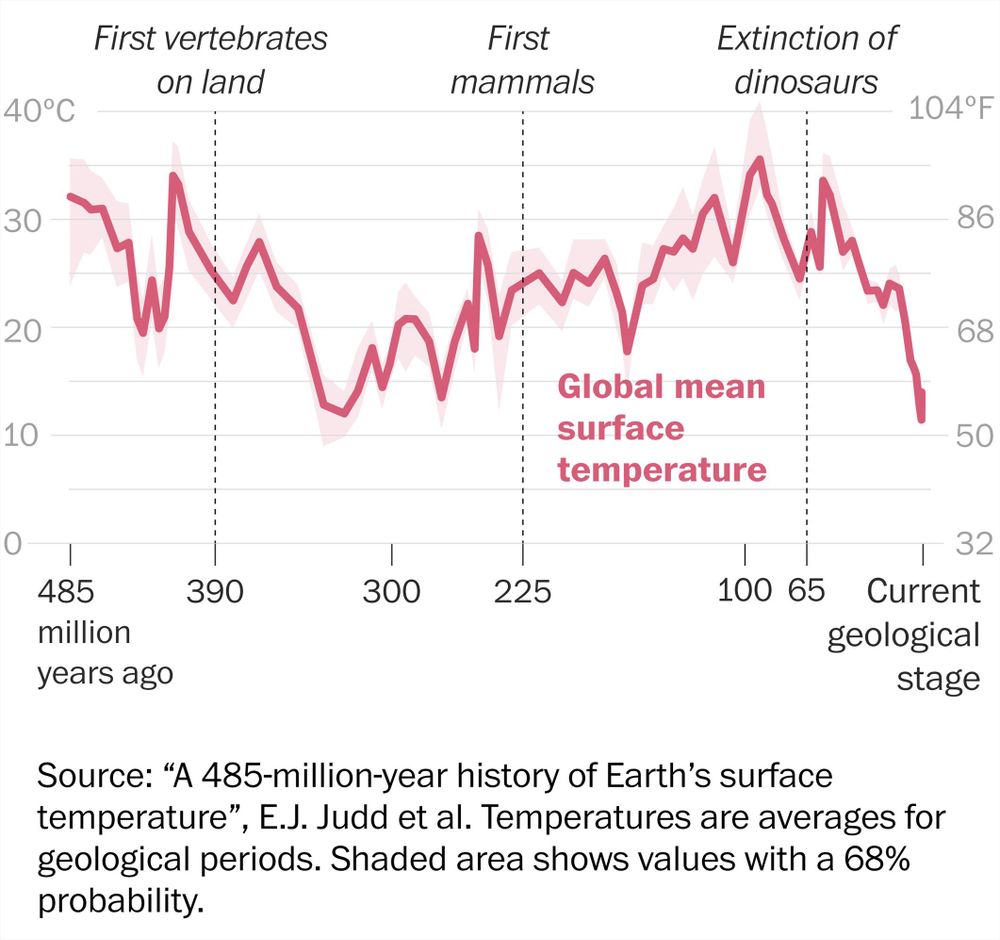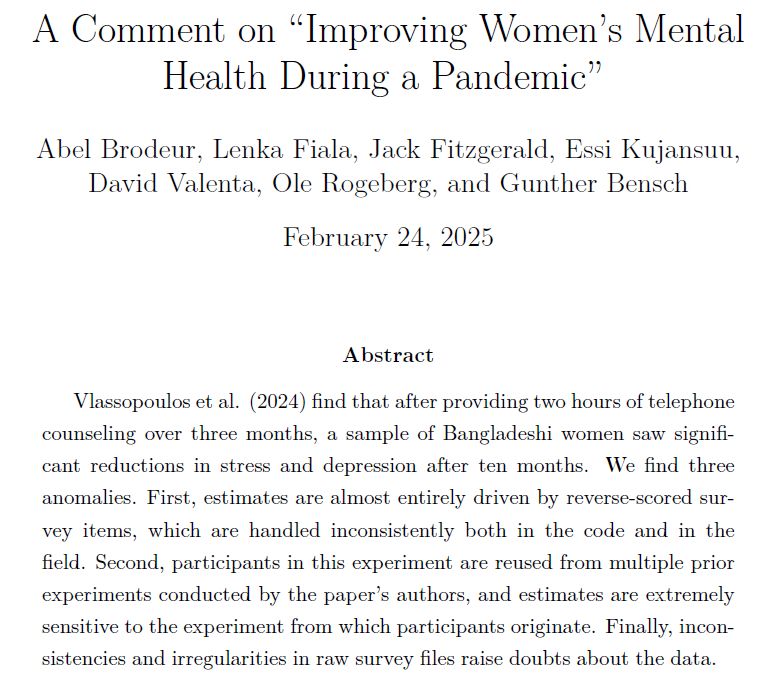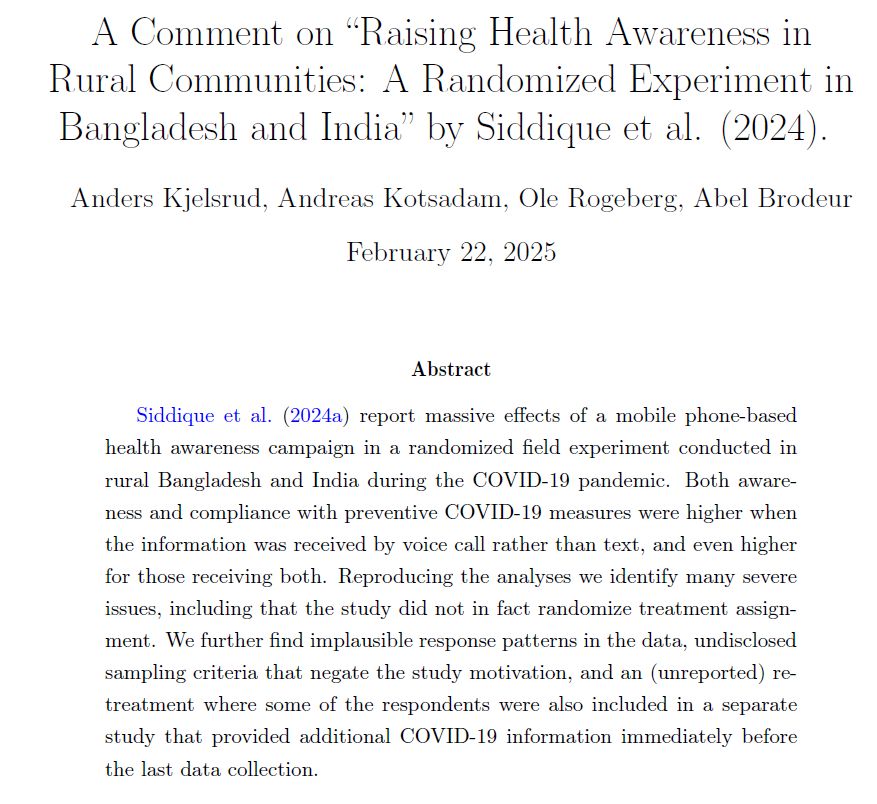
Princeton University Press books are discounted by 50%.
I'd say that's a great deal!
press.princeton.edu?cq_src=googl...
@mvbulutay.bsky.social
Postdoc at Heidelberg University. I am a behavioral economist who works on topics related to information and expectations, using experimental methods. https://www.muhammedbulutay.com/

Princeton University Press books are discounted by 50%.
I'd say that's a great deal!
press.princeton.edu?cq_src=googl...
Got to read!
29.05.2025 13:34 — 👍 0 🔁 0 💬 0 📌 0Come and listen to me talk about my work on what consumers think about central bank inflation forecasts and how that affects inflation expectations and trust at the "Theories and Methods in Macroeconomics" Conference.
There are many other interesting projects too!
www.t2m.network/2025/program/
Thanks to everybody who chimed in!
I arrived at the conclusion that (1) there's a lot of interesting stuff about interactions and (2) the figure I was looking for does not exist.
So, I made it myself! Here's a simple illustration of how to control for confounding in interactions:>

The "unexpected compression" in wages continues!
Non-managerial wages (for around 80% of private workforce) continues to grow somewhat stronger than overall wages. This means the reduction in wage inequality post-pandemic has remained, and continued (at a slower pace).
💡 TL;DR: We blend a behavioral bias into rational inattention — and find new welfare implications. Overprecision distorts attention, causing people to suboptimally underreact to information.
📄 Read the full paper:
papers.ssrn.com/sol3/papers....
We find
✅ Feedback reduces overprecision
✅ Higher attention cost → less updating and more error.
But here’s the twist:
❗️Overprecision amplifies the effect of attention costs
This reflects irrational inattention: suboptimal updating due to biased beliefs, not just costs.

We ran a pre-registered experiment to test the model.
🎯Task: Guess average age of people in historical pictures (e.g., Solvay Conference) — before & after seeing info.
Treatments:
- Feedback on belief calibration (overprecision shifter)
- Noise on the info (attention costs shifter)

We extend rational inattention theory to incorporate overprecision.
A new prediction: Reducing costs of info processing has asymmetric welfare effects.
Example: A central bank simplifies communication to reduce inattention.
✅ Overprecise households react more
❌ Underprecise households react less

🚨New paper🚨
Classic rational inattention says people weigh costs vs. benefits when processing info.
We show that overprecision biases this evaluation — leading to misallocated attention.
📄 Theory + experiment
(link in last post)
#econsky @boschrosa.bsky.social
This is something people undervalue about laboratory experiments. One can credibly boost the understanding of instructions, sometimes just by reading them aloud.
18.04.2025 14:50 — 👍 1 🔁 0 💬 0 📌 0I want to try this 😂
15.04.2025 18:02 — 👍 0 🔁 0 💬 0 📌 0🔔 Call for Participation 🔔
Lab² is inviting researchers to take part in a multi-analyst study on the effects of having daughters on various outcomes.
Join this metascience project as a co-author and gain the opportunity to work with SOEP data!

I’ve just completed a revision of a paper titled “Psychological narratives in decision theory: what they are and what they are good for.”
I believe it makes a contribution to the recent literature on the epistemic role of narratives in science, particularly in economics.
ssrn.com/abstract=476...
This is a great opportunity to join us in the beautiful city of Heidelberg.
Let me note that experiments are a common method among the faculty, including macroeconomists and microeconomists.
That sounds like a good idea. I just hope it doesn't have unintended effects like discrimination.
27.03.2025 13:46 — 👍 0 🔁 0 💬 0 📌 0
I finally have a publication date for my new Experimental Economics textbook: December 12. Equally as important, I am proud to have negotiated a low price for the book: $38.10...for a nearly 800 page book!
You can find the book here: www.amazon.com/Experimental...

Whenever I post about climate, skeptical folks inevitable respond with this graph. So I decided to do something radical: actually read the underling scientific paper and ask the authors.
As it turns out, it actually says the opposite of what skeptics claim: www.theclimatebrink....
Much of the recent literature uses non-incentivized measures of beliefs and attitudes. The typical justification is based on simplicity. This study seems to show otherwise.
05.03.2025 19:45 — 👍 1 🔁 0 💬 0 📌 0If one person gives a euro to Ukraine, the result is €1.
If two people give 2 each, it is €4.
If 3,000 give 3,000 each, it is 9 million.
Let’s coordinate, here 👇
and please re-post to spread the word.
yourcontributionsquared.eu/en/

This is the summer school that got me interested in macroeconomics and finance. I highly recommend it.
And it is in Barcelona!
www.upf.edu/web/beslab/h...
I wonder if they would behave differently if there were some humans in the market. The common knowledge of rationality may be what's driving their outcome.
28.02.2025 12:18 — 👍 2 🔁 0 💬 0 📌 0After a long wait, the working paper for the Many-Economists Project: The Sources of Researcher Variation in Economics. We had 146 teams perform the same research three times, each time with less freedom. What source of freedom leads to different choices and results? papers.ssrn.com/sol3/papers....
25.02.2025 19:17 — 👍 347 🔁 161 💬 12 📌 41This is a very interesting result.
My opinion: RCTs remain one of the more robust methods for p-hacking because the results are more verifiable due to data availability, pre-registration, and simplicity of analyses. In contrast, IV, structural, and simulations are much more flexible for p-hacking.
The 2025 Annual Meeting of the Central Bank Research Association (CEBRA) will be co-organized with the Federal Reserve Bank of Boston and Harvard Business School
Deadline March 20!
Also a session organized by @suomenpankki.fi !
cebra.org/events/annua...


After being alerted about possible misconduct, the I4R are reproducing published papers that use data from a specific NGO (GDRI). This thread releases the first 2 reports and provides more information about the work and responses/statements from authors journals and journals. 🧵
24.02.2025 01:55 — 👍 135 🔁 61 💬 3 📌 22I really like stacked bar charts for time series.
24.02.2025 08:05 — 👍 1 🔁 0 💬 0 📌 0
With companies debating return-to-office policies, Alessandra Fenizia @afenizia.bsky.social (GWU) examines productivity differences between remote and office work—using data from UK public sector workers.
Hosted by @talknormal.co.uk
🔊 Listen here: cepr.org/multimedia/d...
#EconSky
I always wanted to see the data on train delays. My experience with German trains has been so bad that I've begun to think I might be underestimating train delays in other countries. This data proves otherwise.
19.02.2025 12:42 — 👍 0 🔁 0 💬 0 📌 0A central banker talking about growth? Looks like it's going to be an interesting talk. I wish my German was good enough to keep up.
19.02.2025 08:44 — 👍 1 🔁 0 💬 0 📌 0